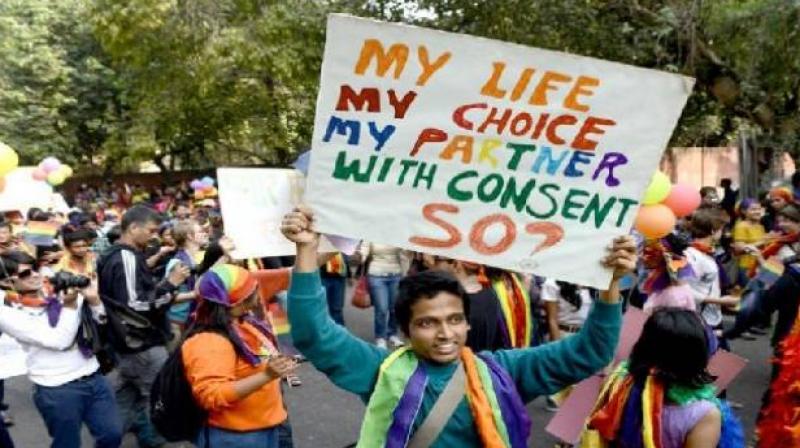SC begins hearing of petitions challenging Section 377
The present NDA govt has also not taken any stand on this issue even though matter is referred to a Constitution Bench.

New Delhi: "As society changes, values change; what was moral 160 years ago might not be moral today," the Supreme Court, which is hearing the petitions challenging criminalisation of gay sex, was told on Tuesday.
The newly re-constituted bench of the Supreme Court started has begun hearing the petitions challenging IPC Section 377 which criminalises unnatural sex between two consenting adults.
The Bench will be headed by Chief Justice Dipak Misra and comprise Justices R.F. Nariman, A. M. Khan-wilkar, D.Y. Chandrachud and Indu Malhotra.
On Monday, the apex court refused to accept the request of the Centre seeking adjournment of Tuesday’s hearing by a Constitution Bench to revisit the 2013 verdict making gay sex illegal between two consenting adults.
Ahead of the hearing counsel for Centre, Col. Balasubramanian 'mentioned’ before a bench of Chief Justice and Justices A.M. Khanwilkar and D.Y. Chadrachud to adjourn the hearing as the Centre was yet to spell out its stand through an affidavit. The CJI told the counsel “this matter has been pending for sometime and Centre should have filed its response. We will go ahead with the scheduled hearing. We will not adjourn it. You (Centre) file whatever you want during the hearing.”
As a result the hearing will begin on Tuesday as scheduled. It must be noted that the UPA government did not file any affidavit giving its stand on the issue and a two-judge Bench decided the matter in 2013 based on the Centre’s oral submissions. The present NDA government has also not taken any stand on this issue even though the matter is referred to a Constitution Bench.
The constitution Bench will commence hearing from July 10, a batch of petitions for a declaration that Section 377 IPC as unconstitutional to the extent that it provides prosecution of adults for indulging in consensual gay sex. A two judge bench in 2013 had ruled that Section 377 IPC which barred any form of sex against the order of nature” as illegal. It has passed the verdict while overturning a judgment of a three-judge bench of the Delhi High Court, which had earlier taken a contrary view and had decriminalised the IPC provision.

